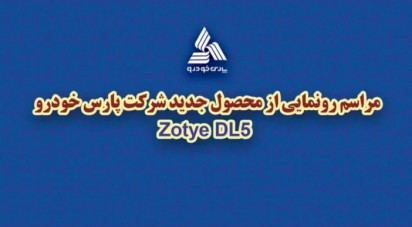| |
- مهار آتش سوزی انبار ضایعات مدیران خودرو در بم
- تیگو ۹ ٬ پرچمدار جدید چری ٬ رونمایی شد
- ارائه خدمات به مشتریان با ربات «مورنین»
- خدمات ویژه امدادخودرو سایپا همزمان با تعطیلات عید سعید فطر
- رشد ۲۰ درصدی تولید در ایران خودرو همراه با کاهش ۱۲ درصدی هزینه تمامشده محصولات/ ارتقای کیفیت برای مشتریان ملموس میشود
- دیدار مدیرعامل سایپایدک با کارکنان سایپایدک، امداد خودرو و همراه خودرو
- برنامه افزایش ظرفیت تولید روزانه پارس در سال جدید
- ادامه محدودیتها و ممنوعیتهای ترافیکی نوروزی در جادههای مازندران
- نیسان کیکس مدل 2025 سرانجام به نسخه چهار چرخ محرک تبدیل شد
- ادامه فراخوان متقاضیان محصول پارس پس از تعطیلات نوروزی
- کیفیت خدمات و تیراژ قطعات یدکی سایپا افزایش می یابد
- تاکید مدیرعامل ایرانخودرو بر ارایه محصول و خدمات باکیفیت به مشتریان
- در خدمات پس از فروش باید نگاه تحولی و عملکرد جهادی داشته باشیم
- زمان آغاز مرحله سوم طرح کالابرگ الکترونیک
What follows is a transcript of the interview that was also supported by two other guests, Hisham Jaber, and Stephen Lendman.
Press TV: US media keeps talking of how a gap is emerging in the Washington-Riyadh alliance since the US policies on the Arab spring, they say, are not exactly like those of Saudi Arabia. Do you think the West and Riyadh differ in the way they want to deal with the Arab uprisings? And when I ask this question, we are considering various reports, like, Britain -- we are hearing today -- training Saudi guards who are sent to Bahrain, Bahrain's crown prince visiting London, Blackwater agreeing to send mercenaries to Abu Dhabi; reports like this are suggesting otherwise. What do you think?
Jeremy Corbyn: I think there is a lot of double standards being operative by both the United States and Britain across the whole region. Our Prime Minister David Cameron is fond of saying he supports democracy, human rights and freedom of the press all across the region. But if he does, I agree with him and I support that, but the reality is that Britain is deeply involved in Libya, is very close to the Bahraini regime, and is equally close to the Saudi regime. Only last year, Britain sold over a hundred million pounds worth of military equipment to Saudi Arabia, and a story has emerged from parliamentary questions, and today in the London Observer that Britain is indeed training Saudi forces that are now being used in Bahrain to put down the democratic rights uprisings there.
So, I think, Britain is as ever looking at all different ways in different directions and trying to understand what is essentially a pan-Arab movement and trying to deal with it on a country-by-country basis. I don't think it will work. There has to be a policy that relates to the entire region and the aspirations of the peoples all across the region.
Press TV: What is the [P]GCC pursuing in Yemen, while it has been working on an exit deal for Saleh? It has also been criticized for offering him immunity from prosecution, giving him time to fight. What do you think the [P]GCC is trying to achieve in Yemen?
Jeremy Corbyn: I think we have to look at two issues. Firstly, the [P]GCC seems to be developing into a kind of localized alternative to the Arab League, hence the extension across Morocco, and other participants to join the [P]GCC, because they recognized that the Arab League, in view of all revolutions anywhere, is likely to become a much more radical body.
And secondly, Saudi Arabia, which has massive oil reserves, huge cash reserves... is very keen to make sure that every one of its neighbors is not going to give it any criticism or any trouble or problems whatsoever, hence the intervention in Yemen, hence the sort of support for the president in Yemen, hence the very rapid intervention in Bahrain to support the king there, and suppress any of those uprisings.
I think that Saudi Arabia is going to be flexing its muscles a great deal.
But one also has to look at the degree of internal opposition in Saudi Arabia which we hear very little about, because there is very limited access to websites in Saudi Arabia, the media are all controlled by the royal families, so the chances of anything getting out are quite minimum. But clearly, there is opposition, there have been interventions by the forces on behalf of the Saudi King to put down any kind of demonstrations or demonstration of popular opinion there. So, I think we need to look very carefully at what is actually happening in Saudi Arabia. And if the Western governments think that everything is going to continue as normal in Saudi Arabia, I think they are very wrong, because young people there, as indeed all over the region, are beginning to see the chances of a different lifestyle, of less unemployment, of better chances of education and free expression.
Press TV: Both guests have just referred to the issue of Egypt. I'd like to put the issue of Egypt now forward with Jeremy here. Jeremy, we have been seeing Saudi aid going to Egypt, and that has been interpreted by some as attempts to head off the showing by the Muslim Brotherhood there. Again signs of Saudi Arabia trying to influence the process there. How do you see that accusation in Egypt?
Jeremy Corbyn: I think the situation in Egypt is very interesting indeed, because the reports are that the Saudi government has tried to provide a large amount of cash aid to the military council in Egypt presumably to try to ensure that Egypt doesn't head off in a completely radical direction that Saudi Arabia doesn't want. And I think you are going to see a considerable amount of attempts of Saudi influence...
It looks as though there are very large resources [that] are going to be deployed on a diplomatic front across the region, because the elections have yet to be held in Egypt. And whilst there are many things happening in Egypt that are extremely welcome, there are also areas of quite considerable concern; and this is why the demonstrations continue, and why there is concern that some of the gains of the revolution which forced Mubarak out are in danger of being taken away.













